Pregnancy
All information about "Pregnancy" and the related magazine articles can be found here.
Our articles are written clearly and link to scientific studies where relevant. This is how we meet our own standards: we regularly deliver new, high-quality content for you—free of charge, no sign-up required, with the highest possible benefit to you.

Astaxanthin - the "super antioxidant"?
Good for skin, joints and immune system
Astaxanthin is said to have a greater effect than other carotenoids, vitamin E and even vitamin C - what's behind this?
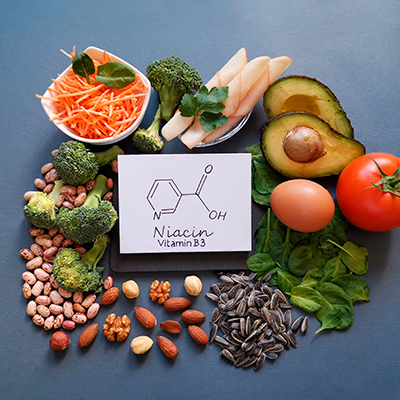
Niacin - a versatile B vitamin!
This is how vitamin B3 works in the body
As an essential vitamin, niacin plays an important role in the human body. But what exactly is this nutrient and how can it benefit our health?

D-Ribose - a natural power up
From the muscles to the heart: D-ribose is of great importance for our health and performance. As a component of all human cells, it is essential for the body's energy supply and regeneration. Health-conscious people and athletes therefore rely on this natural option to support their vitality and their cells. Find out more about D-ribose here now!

Ashwagandha - a real health all-rounder?
The powder from the sleeping berry is an integral part of Ayurvedic medicine and is valued for its many health-promoting properties. Read more now.

All you need to know about vitamin A
Vitamin A - also known as retinol - has become an important ingredient in anti-ageing skincare products. But it also has many other benefits.

Not in the mood for anything?
Listlessness, apathy, fatigue - seemingly harmless terms that can drastically reduce the quality of life of those who suffer from them. How these complaints differ and what diseases and causes may be behind them.

How creatine affects fitness
Creatine is primarily known for its effect on muscle building - but it plays a far more versatile role in the human body. We have summarised everything you need to know about this special substance for you in this article.

These conditions can cause hair loss
Hair loss, sudden hair loss, circular hair loss - when the hair on your head disappears, it can be a huge psychological burden for many people. What diseases can cause hair loss.
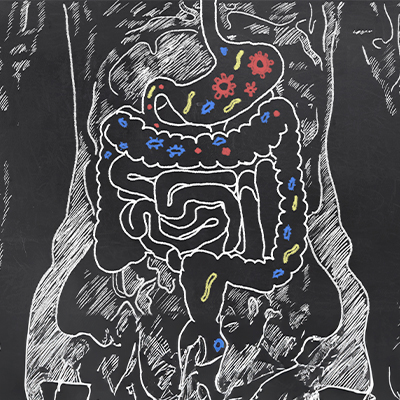
All you need to know about gut health
Intestinal health not only affects digestion, but also your overall wellbeing. Find out more now.

Home remedies for heartburn
Burning, heartburn, pain: almost everyone is familiar with heartburn. Taking a look at your lifestyle and diet can help manage the symptoms. Find out now how you can get relief in just a few steps!

Glycine regenerates body and mind
As an important amino acid, glycine is involved in many processes in the body and can have a positive effect on both physical and mental health. Muscles, skin, stress and psyche: find out more about the extensive areas of application and effects of this amino acid here.

How to recognise the symptoms of a vitamin deficiency
Permanent tiredness, mood swings, digestive problems and hair loss - vitamin deficiency can manifest itself in many unspecific symptoms. Find out which ones you shouldn't ignore.

Is Moringa a real "superfood"?

This is how versatile the micronutrient choline is in the body
The vitaminoid is a real all-rounder & is used in many places in the body as a cell building block. A deficiency has major health implications.

Omega 3 for your skin, heart and brain
Omega-3 fatty acids are found in some foods, including fish. If you have an unbalanced or vegetarian diet, omega-3 capsules are a sensible alternative to ensure you get enough of the fatty acid. Find out more about the many benefits of an optimal omega-3 intake and how a deficiency can become apparent.
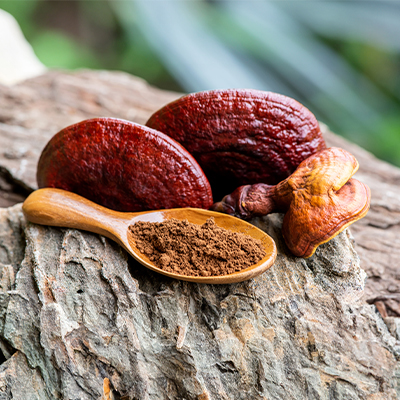
Reishi - a medicinal mushroom with thousands of years of tradition
What makes Reishi so special? Reishi has a long history in Traditional Chinese Medicine (TCM) and is now gaining popularity worldwide as a medicinal mushroom with positive health effects. Find out more about its many uses, the scientific research and the potential benefits attributed to it.

How L-carnitine works in energy metabolism
Carnitine is mainly found in animal foods and plays an important role in energy metabolism. Find out more now.

These are the causes of hair loss
There are many different types of hair loss in men and women - and there are different ways to help your hair grow back. Find out more now.
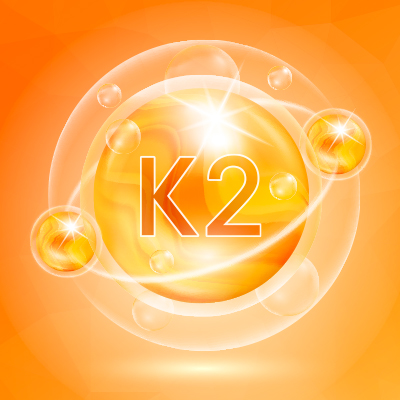
Vitamin K2 for bones and cardiovascular health
A vitamin K2 deficiency is associated with osteoporosis and arteriosclerosis. Here you can find out more about this important vitamin, its function in calcium metabolism and what you should definitely bear in mind when taking a supplement.
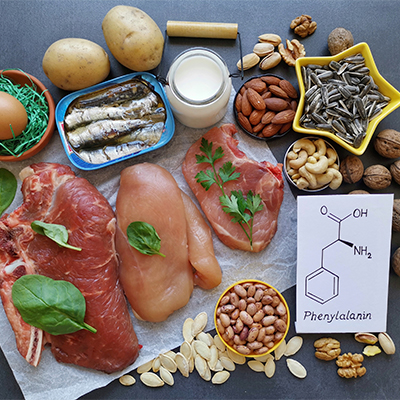
The body needs phenylalanine for this
The amino acid phenylalanine is required for the synthesis of dopamine and serotonin and is also an important building block for proteins. Find out more now.
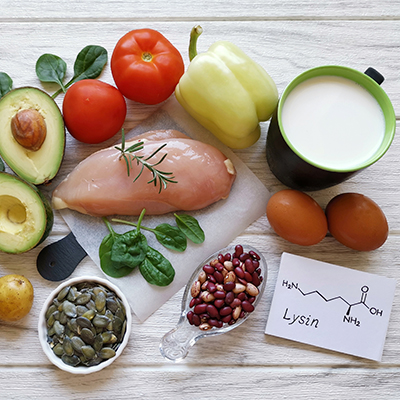
The essential amino acid lysine
From the metabolism to the immune system to the skin: there are many processes in the body in which lysine is involved. A deficiency of the essential amino acid can therefore disrupt these processes. The good news is that lysine is found in many foods. Find out more in this articel!

Your nutritional timetable for pregnancy
The right diet is particularly important during pregnancy to ensure that the expectant mother and, above all, the baby are adequately supplied with all the important nutrients. Because nutrition can influence the baby's development! Valuable answers and tips can be found here.
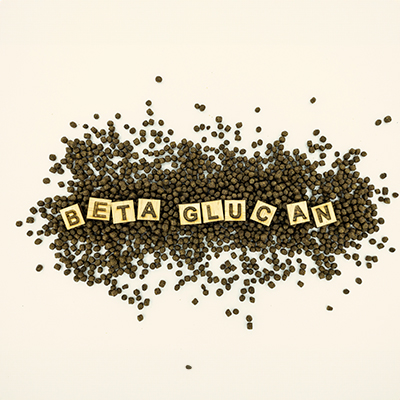
The importance of beta-glucan for the body
Good for the gut and the immune system? Fibre is said to have a number of health-promoting properties and effects. We have summarised these for you in this article.
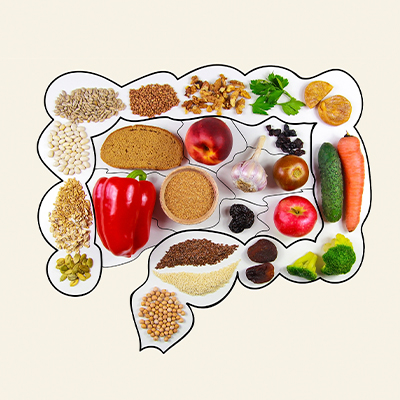
Propionic acid - why we need vegetables for this
Everyone has heard that fibre is important for our health, but do you know why? Did you know that vegetables and pulses form propionic acid in our gut? But what is it good for? Find out more here!
Optimal Supply During Pregnancy: Tips and Advice for Expecting Mothers
Pregnancy is an incredible journey in a woman's life, marked by physical changes, emotions, and anticipation of the upcoming family member. From the first signs to the birth of the child and beyond, each phase is significant and brings a wealth of questions, hopes, and challenges. From the absence of menstruation and the first pregnancy test to the due date, exciting experiences await. Learn more about the various aspects of pregnancy and get well-founded information and useful advice to support expecting mothers on their journey.
How to Recognize Pregnancy?
The signs of being pregnant can vary from case to case. Typical early symptoms include the absence of menstruation, nausea, fatigue, more sensitive breasts, and increased urination. A pregnancy test can turn positive as soon as the body produces sufficient amounts of the pregnancy hormone hCG, which typically occurs about two weeks after conception. However, a pregnancy test can yield both false positive and false negative results. It is therefore recommended to consult a doctor as soon as possible after a positive pregnancy test or suspicion of pregnancy to confirm implantation and receive necessary medical care. An absent period should also be clarified regardless of the results of a pregnancy test. Some women may experience first signs of being pregnant just a few days after conception, while others may take a little longer to notice changes.
What Helps with Nausea During Pregnancy?
Pregnancy nausea is hormonally induced and often occurs from the fifth or sixth week of pregnancy, but can also occur earlier or later. There are various remedies and strategies that can provide relief from nausea. Some expectant mothers find relief through small, frequent meals (e.g., crispbread) that are rich in carbohydrates and low in fat. Ginger in the form of tea, candies, or capsules can also be useful in reducing nausea and vomiting (1).
Acupressure bracelets worn on the wrist can alleviate nausea in some women (1). It is important to consume enough fluids, especially in the form of clear drinks such as water or ginger tea. In case of severe or persistent symptoms, it is advisable to consult a doctor to discuss further treatment options.
Further useful information on the topic can be found here: /blog/where-does-pregnancy-nausea-come-from
Overview: What Happens in Each Week of Pregnancy?
Pregnancy lasts an average of 40 weeks, divided into three trimesters. The exact number of pregnancy weeks can vary as the time of conception is not always precisely known. To calculate the pregnancy week, the first day of the last menstruation is used as a starting point. There are numerous pregnancy week calculators and tables available to track progress.
Different developments occur in the body of the child and the pregnant woman during each pregnancy week. As the child develops rapidly, it is important for women who decide against having a child to make this decision promptly to consider all available options and, if necessary, take appropriate steps. Abortion is legal in many countries up to the 12th week of pregnancy, but legal regulations may vary depending on the country. It is important for women to receive all available information and support to make an informed decision.
Here is an overview of the pregnancy weeks and the corresponding changes (2):
1.-4. Week: Implantation of the fertilized egg, beginning of organ formation.
5.-8. Week: Developmental phase of organs and body systems, heartbeat of the embryo.
9.-12. Week: Completion of organ formation, formation of finger and toe rudiments.
13.-16. Week: Fetal growth, movements become noticeable, first ultrasound examinations.
17.-20. Week: Developmental phase of the skeletal system, determination of the baby's sex, first movements felt by the pregnant woman.
21.-24. Week: Further fetal growth, developmental phase of the brain.
25.-28. Week: Fetus begins to turn upright, opening and closing of the eyelids.
29.-32. Week: Baby's weight gain, developmental phase of the immune system.
33.-36. Week: Preparation for birth, baby descends into the pelvis.
37.-40. Week: Completion of organ development, baby is ready for birth.
It is important to note that the developmental stages of each baby are individual and may vary from case to case.
When Does the Belly Start to Grow?
The time when the belly starts to grow can vary and depends on various factors, including the woman's individual anatomy, the size of the baby, and whether the mother is pregnant for the first time or not. Typically, women, especially first-time mothers, begin to notice a slight increase in belly size towards the end of the first trimester (around the 12th to 16th week of pregnancy) as the uterus expands and the baby grows. In women who have been pregnant before, the belly may start to grow earlier, possibly around the 10th week of pregnancy or even earlier.
What Helps with Heartburn?
In addition to nausea and vomiting, heartburn is another symptom reported by many pregnant women. Various measures can help against heartburn, including (3):
Small Meals: Instead of large meals, frequent small meals can be consumed to avoid overloading the stomach.
Upright Posture After Eating: Remain upright for at least an hour after eating to prevent stomach contents from entering the esophagus.
Avoidance of Certain Foods: Spicy, fatty, and acidic foods as well as caffeinated beverages can exacerbate heartburn and should be avoided.
Sleeping with Elevated Upper Body: Sleeping with a slightly elevated upper body can help reduce heartburn.
Natural Remedies: Ginger, chamomile tea, or almonds can help alleviate heartburn.
Medication: In some cases, the doctor may recommend taking medication to bind stomach acid to relieve heartburn (3). However, it is important to consult a doctor to ensure the safety and appropriateness of medications during pregnancy.
If heartburn is severe or frequent, it is important to discuss this with a doctor to take appropriate countermeasures. More information on heartburn can be found here.
When Is the Critical Time Over?
The critical phase in pregnancy, also known as the first trimester, typically ends after the first 12 weeks or three months. Complications and miscarriages are more common during these months, especially in the first weeks. After the first trimester, the likelihood of miscarriage and pregnancy complications usually decreases significantly, and the fetus develops and grows in size. However, it is important to note that each pregnancy period is individual, and problems may also occur in later trimesters. It is therefore advisable to pay attention to the health and well-being of the mother throughout the months and to undergo regular check-ups from the absence of menstruation.
From When Is a Baby Viable Outside the Womb?
A baby is generally considered viable outside the womb from the 24th week of pregnancy, as at this stage the organs and systems of the fetus are sufficiently developed to survive outside the uterus, albeit with intensive medical support (4).
Premature births occurring before the 37th week of pregnancy, however, can be associated with a range of complications. These include respiratory problems due to lung immaturity, inability to regulate body temperature, difficulties in feeding and digestion, as well as an increased risk of infections and developmental delays (4).
The consequences of premature birth can range from mild to life-threatening problems, and the chances of survival and long-term health prospects depend on various factors such as the age of the child at birth, the quality of medical care, and individual health conditions.
What Is Pregnancy Poisoning?
Pregnancy poisoning, also known as preeclampsia, is a serious condition during pregnancy characterized by high blood pressure and protein in the urine after the 20th week of pregnancy, i.e., in the later months. The causes of this are not fully understood, but problems with the placenta and blood vessels play a role. Symptoms include high blood pressure, headaches, vision disturbances, nausea, abdominal pain, and water retention. Untreated, pregnancy poisoning can lead to eclampsia, liver or kidney failure, and even death (1). Treatment involves blood pressure control, monitoring, medication, and possibly termination of pregnancy. Early recognition of signs and symptoms as well as more frequent prenatal examinations in the weeks and months from the middle of the pregnancy period are important.
Why Can There Be Gestational Diabetes?
Gestational diabetes occurs in pregnant women when the body does not produce enough insulin to cope with the increased blood sugar level. Pregnancy hormones can impair insulin action, leading to elevated blood sugar levels. Risk factors include obesity, family history of diabetes, and previous cases of gestational diabetes. Untreated, it can lead to complications for both mother and child, such as an increased likelihood of cesarean section, preterm birth, and higher birth weight of the child (6).
Signs of gestational diabetes can include:
Frequent Urination: Frequent urination can be an initial symptom as the body eliminates excess sugar through urine.
Excessive Thirst: Increased fluid excretion can lead to increased thirst.
Fatigue: Gestational diabetes can cause fatigue as the body is unable to effectively use sugar to produce energy.
Vision Problems: Some women may notice vision problems as high blood sugar affects fluid balance in the eye.
Weight Gain: Unexplained weight gain despite a healthy diet and exercise may be a symptom of gestational diabetes.
Infections: Pregnant women with gestational diabetes may be prone to urinary tract infections or vaginal yeast infections.
Control measures include regular blood sugar monitoring, a balanced diet with a low glycemic index, regular physical activity, and in some cases insulin therapy. Early diagnosis and regular medical care are crucial to minimize the risk of complications.
Which Pregnancy Vitamins Are Beneficial?
Pregnancy vitamins play a crucial role in supporting the health of both mother and child during pregnancy. Here are some important vitamins (7):
Folic Acid (Folate): Supports the formation of the neural tube and can prevent neural tube defects such as spina bifida. The recommended intake is 400 micrograms per day.
Vitamin D: Important for bone formation and calcium absorption. It is recommended to take a vitamin D supplement of 10 micrograms per day.
Iron: Supports the formation of red blood cells and helps prevent iron deficiency anemia. The recommended intake is 30 milligrams per day.
Calcium: Important for bone formation and tooth development. The recommended intake is 1,000 milligrams per day.
Omega-3 Fatty Acids: Important for brain and eye development in the fetus. The recommended intake is 200-300 milligrams of DHA per day.
Iodine: Important for thyroid function and brain development in the fetus. The recommended intake is 220 micrograms per day.
Pregnant women should ideally obtain these vitamins through a balanced diet rich in fruits, vegetables, whole grains, lean proteins, and dairy products. In some cases, however, it may be necessary to supplement certain vitamins to meet the increased demand during pregnancy. It is important to consult a doctor or midwife before taking any supplements to ensure the appropriateness and dosage.
What Should You Eat During Pregnancy?
If you are pregnant, a balanced diet is crucial to support both the mother's health and the baby's development. It is recommended to consume a variety of nutrient-rich foods, including fruits, vegetables, whole grains, lean proteins such as lean meats, fish, legumes, nuts, and seeds. Dairy products also provide important sources of calcium.
In the early weeks of pregnancy, it is particularly important to ensure adequate intake of folic acid to reduce the risk of neural tube defects. Smaller, more frequent meals can help alleviate nausea. Drinking enough water is also important to keep the body hydrated and alleviate potential pregnancy discomfort.
What Should Pregnant Women Avoid Eating?
Pregnant women should avoid certain foods to reduce the likelihood of complications during pregnancy. These include:
- Raw or undercooked meat
- Raw fish
- Raw eggs and products containing raw eggs
- Raw milk and unpasteurized dairy products
- Soft cheeses such as Camembert, Brie, or Feta
- Raw sprouts
These products should be avoided as they can increase the risk of food poisoning from bacteria or parasites, salmonella infections, and toxoplasmosis.
Tt is also recommended to reduce consumption of highly caffeinated beverages and to completely avoid alcohol consumption during the months leading up to the due date and also during breastfeeding, as alcohol can increase the risk of birth defects and developmental disorders such as FASD (8).
Tips for the Postpartum Period!
The postpartum period, also known as the postpartum phase, is an important time of recovery for the mother after childbirth. Here are some useful tips:
Adequate Rest and Recovery: Prioritize adequate sleep and rest periods to recover from the efforts of childbirth and adjust to the new situation.
Seek Support: Accept help from your partner, family members, or friends to receive support in caring for the newborn, household chores, and other daily tasks.
Healthy Nutrition: Pay attention to a balanced diet rich in nutrients that provides you with energy for your own recovery and for caring for the baby. Drink enough water to stay hydrated.
Personal Care: Take time for regular personal care, including showers or relaxation rituals, to feel fresh and groomed.
Explore Your Emotions: The postpartum period can be accompanied by emotional highs and lows. Openly discuss your feelings and seek professional support if needed to cope with mood swings or emotional challenges.
Stay Connected: Maintain contact with friends and family members to receive social support and avoid feeling isolated.
Gentle Exercise: Start slowly with gentle exercise such as walks to promote circulation and gradually reactivate your body. However, avoid excessive exertion and listen to your body.
Breastfeeding: If you are breastfeeding, seek support from a lactation consultant or specialist in case of problems or uncertainties to establish a successful breastfeeding relationship.
Bonding with the Baby: Use this time to build a bond with your newborn by promoting skin-to-skin contact, cuddling, and quiet moments of interaction.
Regular Doctor Visits: Keep regular appointments with your doctor to monitor your recovery, ask questions, and, if necessary, receive medical support.
Sources
[2] https://www.netdoktor.de/schwangerschaft/schwangerschaftswochen/
[3] https://www.netdoktor.de/schwangerschaft/sodbrennen-in-der-schwangerschaft/
[4] https://www.frauenaerzte-im-netz.de/schwangerschaft-geburt/frueh-und-fehlgeburt/
[5] https://www.usz.ch/krankheit/schwangerschaftsvergiftung/
[6] https://flexikon.doccheck.com/de/Schwangerschaftsdiabetes
[7] https://www.tk.de/techniker/magazin/familie/schwangerschaft-vitamine-mineralstoffe-2009392?tkcm=ab
